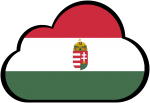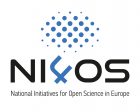
NOSCI Information
- Name: Nyílt Tudományos Fórum (Open Science Forum)
- Description: The Open Science Forum complements the ongoing “top level” efforts of developing an Open Science Strategy in Hungary.Through the EOSC infrastructure the research community can have access to resources that otherwise would not be available, service providers can offer services to a wider user community. The national initiative can be proven useful in preparing all national stakeholders for their participation into the EOSC Ecosystem.On the one hand, by increasing awareness about EOSC, and on the other hand by involving local stakeholders into the EOSC activities.
- The main Open Science Forum objectives are:
- Contribute to a better definition of the country-level Open Science Strategy
- Support the alignment of the country level tasks to the EOSC task forces activities and vice versa: provide useful input into the international teams
- Maximize the potential benefit for the country.
- Website: No direct one, but information is provided at openscience.hu and https://kifu.gov.hu/ni4os/
- Date of establishment: The official launch of the initiative is estimated to take place by the end of 2021. The first forum meeting took place on 28/05/2021.
- Set-up workflow: Hybrid
- Governance structure: A joint governance of the NI4OS-Europe Hungarian partners
- Members: The Open Science Forum was established by the University of Debrecen and a national service provider for research which operates under the supervision of the Ministry of Innovation and Technology, KIFÜ.
- Related documents: –
- NI4OS-Europe contact points: University of Debrecen and KIFÜ
Open Science Profile
Currently there is an integrated Open Science /FAIR data policy in Hungary. However, a working group at National Research, Development and Innovation Office (NKFIH/NRDIO) was established to formulate the policy regarding OS. Responsible for this policy making in the Ministry of Innovation and Technology (ITM/MIT). Also involved are NKFIH/NRDIO and the Governmental Agency for IT Development (KIFÜ) which is responsible for e-infrastructure. OA policies are slowly adopted in Higher Educational Institutes (HEIs). The policy in most HEIs encourages researchers to deposit all research outputs at the institutional repository and to provide open access upon publication or as soon as possible (respecting publishers’ policies). The deposit of PhD and master theses is mandatory (Act CCIV of 2011 on national higher education; about doctoral schools, the order of doctoral procedures and habilitation). The Open Access policy has been mandatory for all NRDIO funded research since 2014.
The Act LXIII/2012 on Reuse of Public Data regulates the access and reuse of the public sector information (PSI) according to directive 2013/37/EC. The last modification of the directive has not yet been implemented in national law.
Ministerial decree 2/2010 (I. 14) on operating licences was replaced by governmental decree 376/2017 (XII. 11) stipulating requirement to makes mandatory for museums to set up data repositories. The new regulation provides an exact definition for its content and function. Institutional Open Access policies are quite common, both in the non-university research institutes and HEIs, without a high-level policy though. In 2019 the Hungarian node of Research Data Alliance (HRDA) was set up for supporting and developing the research data management in Hungary.
National Electronic Information Service (EISZ) Program operated at Library and Information Centre of Hungarian Academy of Sciences provides access to electronic scientific content for domestic higher education, public collections, and non-profit research by purchasing a national license. EISZ also contributing to the Open Access publishing and discussion in Hungary.
For more information on national Open Science policy please visit OpenAIRE portal.
EOSC Collaboration
- Mandated organisation: Governmental Agency for IT Development (KIFÜ)
- Observer: –
- Member: –
- Participation in EOSC pillars:
- OpenAIRE: Gyöngyi Karácsony (Hungarian CoNOSC – Council of National Open Science Coordination) and Judit Fazekas-Paragh (Hungarian EOSC Skills and Training WG delegate) both from University of Debrecen,
- NGI: Robert Lovas from MTA SZTAKI
- RDA: Judit Fazekas-Paragh and Gyöngyi Karácsony from University of Debrecen, András Holl from Library and Information Centre, Hungarian Academy of Sciences, Robert Lovas, Peter Kacsuk and László Kovács from MTA SZTAKI and János Mohácsi from KIFÜ
- GEANT: János Mohácsi from KIFU
EOSC PROMOTER PROFILE
Every partner country is represented by at least one EOSC Promoter. Click the button below to check out their profile.
VISIT PROFILE